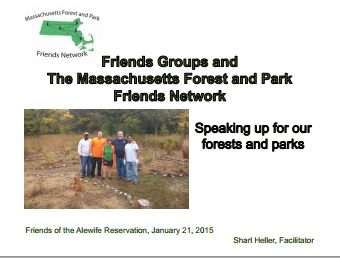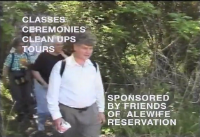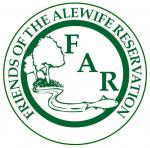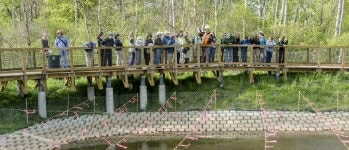From Quinton Zondervan
Green Cambridge President
Climate Protection Advisory Committee
City of Cambridge
Cambridge - The Cambridge Conservation Commission on Monday, Nov. 18, voted to approve an amended Order of Conditions that will allow a proposed hotel to be built on Acorn Park Drive, near a restored wetland and adjacent to the Alewife Reservation. This development is part of a master plan approved back in 2010.
On the surface this was a routine matter, and that is exactly the problem. While the climate is changing in ways that are anything but routine, our bureaucracy continues to function as if nothing has changed.
The city of Cambridge is in the middle of conducting a Climate Vulnerability Study, which I personally advocated for back in 2008 as a member of the Cambridge Climate Action Protection Committee, which advises the city on climate policy. We know the storms are coming but we don’t know yet what to do about it. The vulnerability study is meant to provide us with a more detailed idea of what to prepare for in terms of climate changes, including rainfall patterns and flooding.
The Conservation Commission is tasked only with administering the state’s Wetlands Protection Act in our community. While that protects wetlands from being paved over, it provides little in the way of legal force to prevent encroachment. To address flooding concerns, the developer has proposed an underground storm water storage tank solution.
This is routine practice now in the flood prone area of Northwest Cambridge where the hotel development is planned. While no human development can ever replace nature’s flood storage and storm water management services, we happily perpetuate the fiction that we can engineer our way out of the increasingly severe predicament we find ourselves in. All in the name of continuing to build in an ecologically fragile area that is much better suited for green space and habitat preservation.
While the Conservation Commission and the developer’s engineers can justifiably say that they are just doing their jobs and that they are mitigating the flood risk of additional development, commonsense tells us that we are fooling ourselves. The climate is changing and we need to change our ways of deciding where to build what.
At the very least, we can wait to permit large new buildings in the floodway until the vulnerability study has been concluded. I’ve added my name to a citizen's petition asking the Department of Environmental Protection to overrule the Conservation Commission’s decision.
— Quinton Zondervan, president, Green Cambridge
- Home
- Directions
- FAR Wildlife Blog
- Calendar
- News
- Donate Now
- Get Social!
- Storm Water Wetlands
- Plants and Restoration
- Photos
- Videos
- About & Projects
- Master Plan for Alewife
- Archive
- Newsletters
- Contact
 Presentation Spotlighting Alewife Reservation
Presentation Spotlighting Alewife Reservation
 Follow us on Twitter
Follow us on Twitter
 Like us on Facebook
Like us on Facebook
 Follow us on Instagram
Follow us on Instagram
Forward our web address to a friend!
- An Urban Gem - Alewife Reservation Nature Preserve
- Envisioning The Silver Maple Forest
- History and Policies of Cambridge, Belmont, and DEP
- Storm Water Wetlands
- Friends of Alewife Reservation brochure
(front, back) - Technical Analysis of Upper Alewife Basin
- Watershed: An Excursion in Four Parts
- The River Is A Restless Spirit: Life in the floodplain forest
-
Assessment of Silver Maple forest for DEP Adjudicatory hearings and
Patrick Fairbairn, author of the Assessment - Community Native Garden Flora
The
Alewife Reservation
is a unique natural resource for the communities of Belmont, Arlington and Cambridge
and home to hundreds of species, including hawks, coyotes beavers, snapping turtles, wild turkeys and muskrats,
the reservation is a unique natural resource for the community.
Historical information (Powerpoint)
Friends of Alewife Reservation works to protect and restore this wild area and the surrounding area for the water quality, native plants, animals and over 90 bird species with paths for walking, running and biking, recreation, and for classroom education and research. We regularly steward and preserve the Reservation area for wildlife and for the enjoyment of present and future generations.

(video)
By-Laws
About Friends of Alewife Reservation
Statement of Purpose
Citizen Forester newsletter archive
The Birds of the Cambridge Region of Massachusetts

by William Brewster 1906
Nuttal Ornithological Society
Biodiversity Study of Alewife Reservation Area: Species, Habitat, Ecosystems

Inventories by David Brown, wildlife assessor (2003, 2004.) Published by and available from FAR for $10. Write or call for your copy. (sample)
Updated Dave Brown Inventories (2008, 2010)
Inventories of Alewife Reservation Wetland Plants by Walter Kittredge, Botanist (2013)

